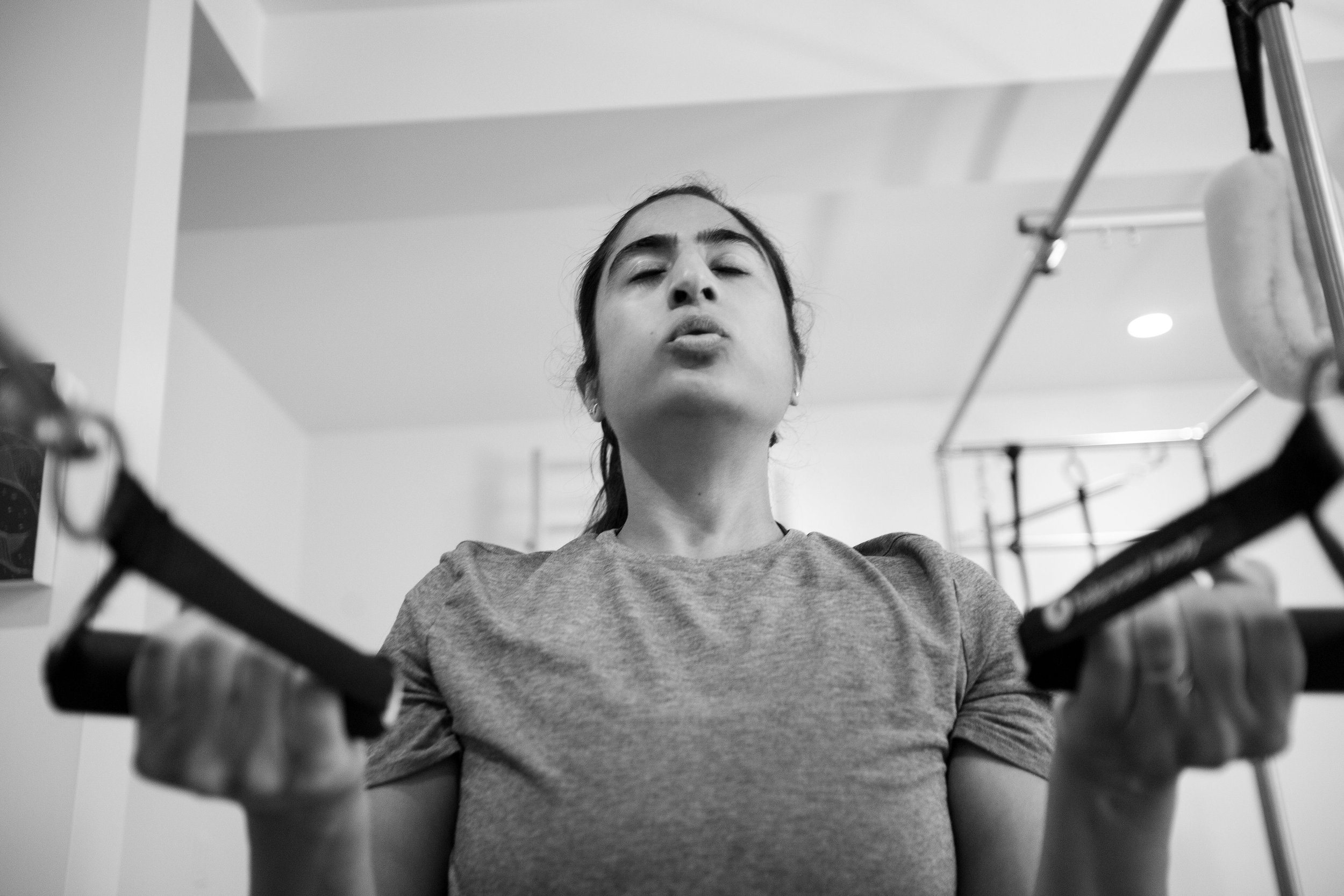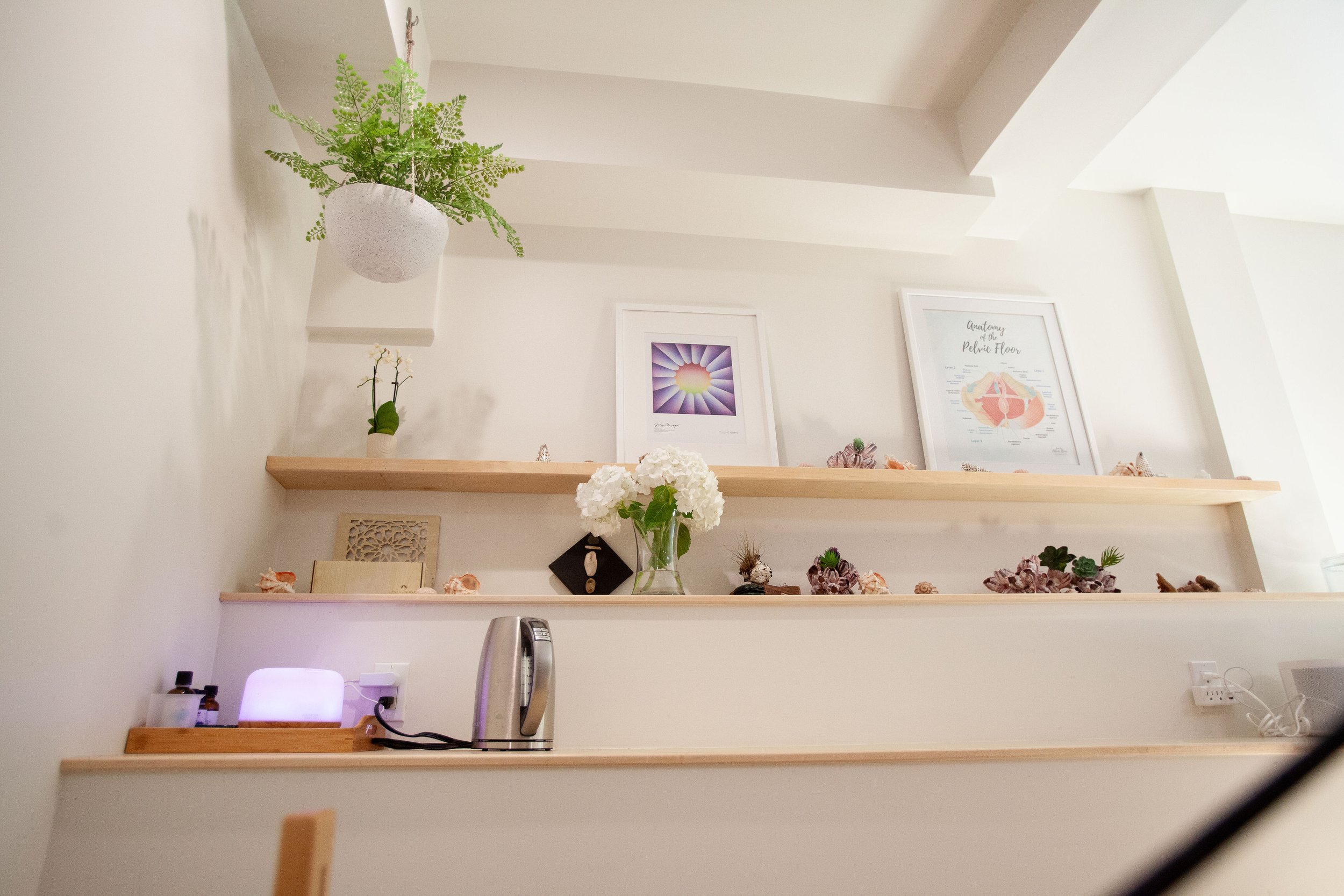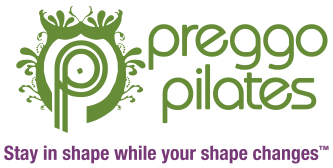
FAQs
-
Yes you can! For the majority of pregnant people exercise during pregnancy is safe and highly beneficial, but there are certain prenatal conditions that may put you into a high-risk category. If you think you’re at risk please contact Stephanie to discuss your options.
Preggo Pilates is a wonderful way to specifically strengthen and stretch muscle groups that are essential for labor and newborn care. A Preggo Pilates workout can safely strengthen the abdominals, pelvic floor, lower and upper back muscles, which are crucial for good posture during pregnancy, endurance in labor as well as providing much needed physical support in the postnatal period.
-
Yes, abdominal exercises are safe to do during pregnancy and are crucial for good posture, lower back strength, baby support and labor contractions.
Re: Abdominal Exercises – Just because you can’t do crunches doesn’t mean you can’t have strong abdominals during pregnancy and beyond!
In the PP program you’ll learn to love your transverse abdominal muscle. It’s the muscular corset that nature gave you for organ and lower back support and healthy pelvic floor functioning.
-
A significant portion of the Pilates repertoire needs to be modified in order to make it a safe pre and postnatal workout.
There are specific exercise guidelines set forth by ACOG (the American College of Obstetrics and Gynecology), which your trainer should be aware of. These guidelines take into consideration the physiological, physical and emotional challenges of the pre and postnatal period and greatly enhance the effectiveness of your workout.
Awareness of and the ability to work through and relieve pre and postnatal “hot spots” like the sacroiliac, pelvic floor, hips, lower back and pubic symphysis among others is tantamount to healing. Preggo Pilates trainers know about safe abdominal and pelvic floor work, good positions for labor, safe exercises to do at home in the immediate postnatal period, stretches to ease tightness due to the hormone Relaxin, and postural problems caused by lack of sleep, labor, breast/bottle feeding, and baby carrying.
It is crucial that your Pilates trainer teach you safe and appropriate protocols to assist in the healing of Cesarean births and Diastasis Recti (split abdominals).
-
For group classes we advise six weeks postnatal. You should no longer be bleeding. For Cesarean births, we advise starting classes between 6-8 weeks postnatal depending on how you feel and the condition of your scar.
That said, certain simple exercises right after giving birth can speed up your recovery by leaps and bounds. These exercises reintegrate your abdominals and pelvic floor for both vaginal and Cesarean births. To learn these exercises before you give birth, schedule a private session with Stephanie now!
-
Virtual PP classes are recorded 50 minutes classes. Other programs may be shorter or longer. At the beginning of each class, you will be informed of what equipment is needed for class. No equipment? No problem! Alternative prop options will be provided from items you likely have laying around your house.
-
You should find a space on the floor large enough to lie down and stretch out your arms above your head and to the sides and fully extend and move your legs. A yoga mat is helpful but not required.
-
Pilates equipment can be helpful in getting the most out of your workout. Stephanie will give modifications during class if you do not have equipment and all equipment required for a class will be show on the intro screen. You can find much of the below laying around your house.
We like to utilize the following equipment in class:
Foam roller (the long version that you can lie on and still support your spine and neck and head),
Magic circle or gertie ball (or small pillow or yoga block)
Light weights (or soup cans/beans)
Strap (or belt or robe tie)
Therabands (or light weights)
Looking to order props? Click here for access to the Balanced Body Store. You will receive a discount by ordering through this link.
-
All equipment is provided for in-person classes.
-
Private sessions are a great way to get specialty support for a specific issue or concern, prefer working out 1:1 with a trainer, or are new to Pilates. A combination of privates and group classes is a great way to have a well-rounded workout routine. Looking for something in between? Try a duet or triplet.


